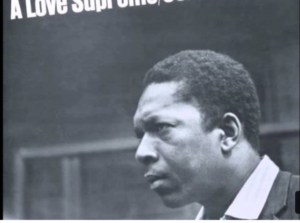Lectio Divina
Center for Action & Contemplation
July 10, 2021Praying the Lord’s Prayer
“Perhaps some of the most comforting words Jesus shared in Matthew and Luke’s Gospels are the prayer Christians call the Our Father or the Lord’s Prayer.
While the prayer is most often said in community or as part of ritual prayer, this prayer can also be a contemplative practice when prayed slowly and mindfully, perhaps even as lectio divina.
We invite you to pray this modern version of the prayer of Jesus from the Anglican Church of New Zealand, which both honors and reflects indigenous Maori culture.”
-Father Richard Rohr
❧
Eternal Spirit,
Earth-maker, Pain-bearer, Life-giver,
Source of all that is and that shall be,
Father and Mother of us all,
Loving God, in whom is heaven:
The hallowing of your name echo through the universe!
The way of your justice be followed by the peoples
of the world!
Your heavenly will be done by all created beings!
Your commonwealth of peace and freedom
sustain our hope and come on earth.
With the bread we need for today, feed us.
In the hurts we absorb from one another, forgive us.
In times of temptation and test, strengthen us.
From trials too great to endure, spare us.
From the grip of all that is evil, free us.
For you reign in the glory of the power that is love,
now and for ever.
Amen.
Om.
Shanti.
Church of the Province of New Zealand, A New Zealand Prayer Book, He Karakia Mihinare o Aotearoa (Collins Liturgical Publications: 1989), 181.
‘One thought…millions of vibrations.’
November 15, 2020Recorded by John Coltrane in 1964.
A Love Supreme: 4th Movement – Psalm – In John Coltrane’s words.
‘Presented here, in his own handwriting, is that Psalm.’
From the Center for Action and Contemplation:
In “Psalm,” John Coltrane plays the “words” of his poem that was included in the original liner notes. He put this handwritten poem/prayer on the music stand in front of him, and “played” it as if it were music. Practicing Lectio Divina with this song may deepen your sense of prayer and add possible ways to pray. If you enjoy the practice with “Psalm,” we encourage you to try praying with other music. That is one of the beauties of Lectio Divina: it encourages us to “pray always.”
Before clicking on the following link to listen to John Coltrane’s “Psalm,”settle your body and begin with silence, asking God to be present in your listening.
Listen to “Psalm” and read along with the words from the poem that appear on the screen. Listen more than once. As you listen again, notice if any image, word, emotion, or memory is called forth in you.
When you settle on an image, word, emotion, or memory, sit silently with it and bring your attention back to it when your attention strays.
Ask God to reveal what this image, word, phrase, or emotion might have to say about your life today.? How is it connected to your spiritual journey?
Rest silently with your image, word, phrase, or emotion. Offer it to God. Wait patiently on God.
What would you like to express to God about the experience of praying with this piece of music? Take some time to journal about your experience.
Here are the opening lines of “Psalm”:
I will do all I can to be worthy
of Thee O Lord.
It All has to do with it.
Thank You God.
Peace.
There is none other.
God is. It is so beautiful.
Thank You God. God is All.
Help us to resolve our fears &
weaknesses.
In You All things are possible.
‘One thought can produce millions of vibrations.’ Indeed, physicist Dr. David’s Bohm theory of the holoflux, ‘the holistic principle of “undivided wholeness” with the idea that everything is in a state of process or becoming (Dr. Bohm calls it the “universal flux”). In this interpretation of physics wholeness is not considered static, but as a dynamic interconnected process. The concept is presented most fully in Wholeness and the Implicate Order, published in 1980.
